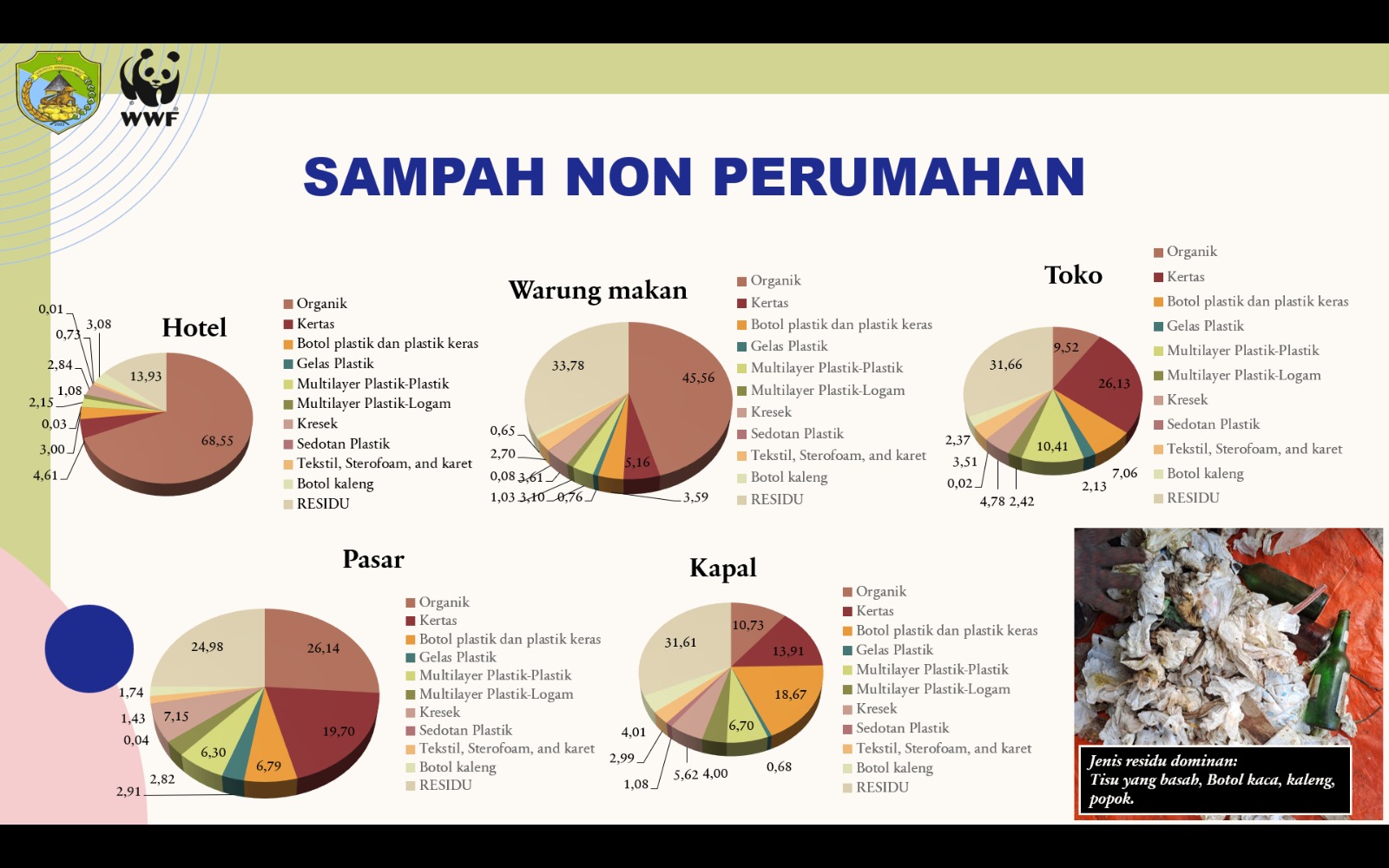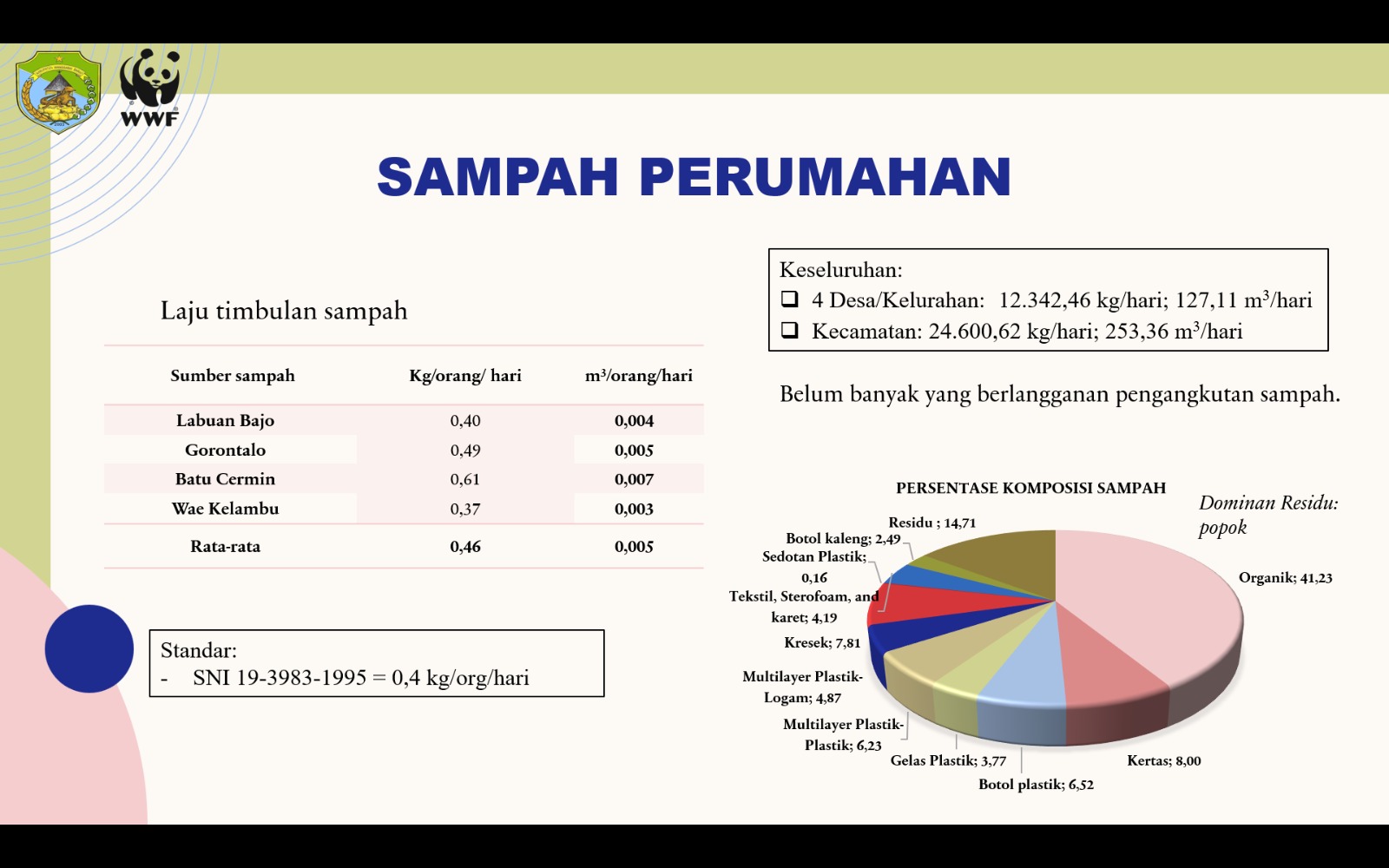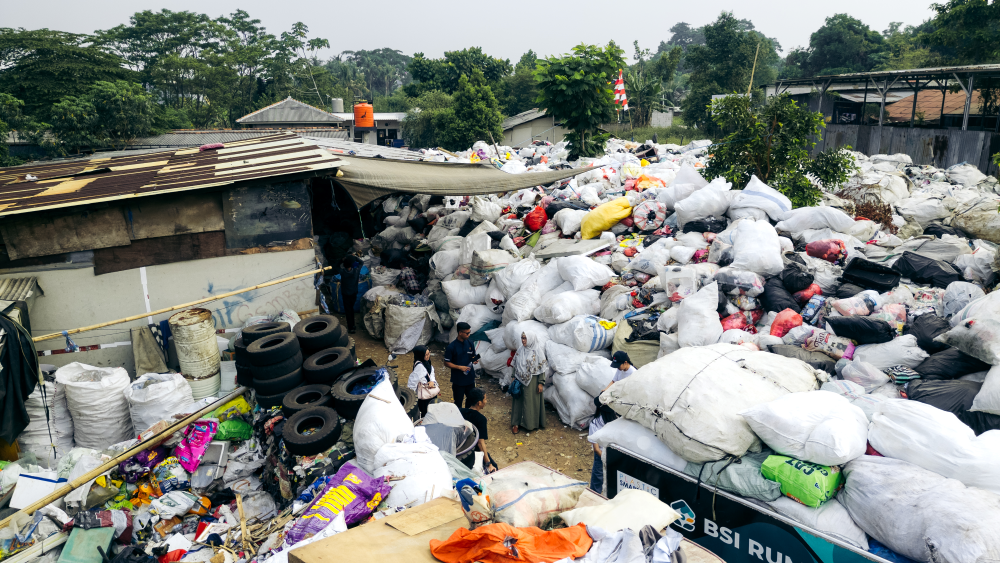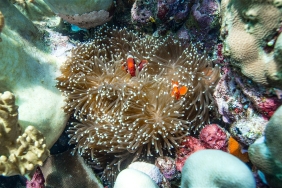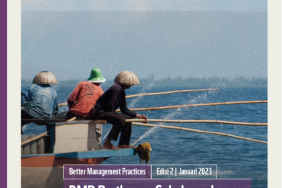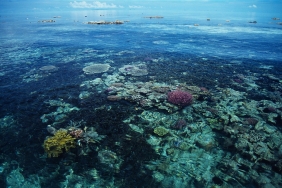OPTIMIZING WASTE MANAGEMENT: COLLABORATIVE ACTION WITH PARTNERS IN WEST MANGGARAI DISTRICT
The dissemination and action plan development activity based on the waste generation study based on the SNI 19-3964-1994 method in West Manggarai Regency is an activity that aims to disseminate the results of the waste generation study and design future action plans. This activity occurred on 20 June 2024 and was attended by various stakeholders, including local government representatives, community organizations, and environmental activists. In this activity, data and findings from the waste generation study that had been conducted previously, on February 28 - March 8, 2024, were presented in detail to the ranks and staff of the Environment and Land Agency of West Manggarai Regency.
The activity began with an opening by the Secretary of the Environment and Land Agency of West Manggarai Regency, Frederikus K Dahur, who highlighted the results of the study. "About 33 tons of waste per day is generated from residential and non-residential areas, and about 20 tons are transported to the Warloka Pesisir landfill," said Frederikus K Dahur. "There are challenges to be faced, so we all must work together in the future to manage and deal with waste based on this assessment data. Keep in mind, there are five important aspects in handling waste, namely the legal or regulatory aspect, the institutional aspect, the operational aspect, and the community participation aspect."
Presenter, Faryda Veronica Lama Koly, presented the results of the waste generation research that was the basis for this event using the Indonesian National Standard (SNI) 19-3964-1994 method. The use of the SNI method has been widely recognized and applied in Indonesia so that the results of the study are easier to compare and use by various parties. In addition, this method is designed by considering Indonesia's local conditions and characteristics, so that it is more relevant and accurate in measuring waste generation in various regions, comprehensive and systematic with complete guidelines, ease of implementation, and data generated from the SNI 1994 method can be used as a basis for formulating public policies related to waste management, thus supporting better and data-based decision making.
The method includes measuring and analyzing the composition and amount of waste generated by households and non-households (boats, restaurants/cafes/dining houses, hotels, markets, and shops) in the West Manggarai Regency. The results of this study identified the dominant types of waste in the region, including organic, plastic, and paper waste. The information obtained is an important basis for developing a more effective and efficient waste management strategy.
"In the study of waste generation using the SNI method, there was a difference of 12.06 tons of waste that did not enter the TPST. This is due to several factors, including not sampling all types of non-residential waste such as waste from schools, offices, or houses of worship, so that waste generation can be higher than what is recorded," said Mrs. Faryda.
In addition, organic waste is mostly diverted to the Recycling Center, and food scraps are used as animal feed. Several communities actively support efforts to reduce waste entering the TPST, including Bajo Bersih Sejahtera (BBS), Nomad Plastic, KSU Sampah Komodo, Kole Project, and Indonesia Waste Platform. However, there are still some areas that are not yet served by the waste transportation system.
In the dissemination session, participants were given an in-depth explanation of the research methodology, the results achieved, and the implications of the findings for waste management policy. Interactive discussions were also held to explore practical solutions that could be implemented. Participants were invited to provide input and work together in designing realistic and sustainable action plans.
Some of the inputs from participants included Intensive campaigns on the importance of good waste management and its impact on the environment, Education programs in schools and communities to teach waste segregation practices from an early age, Optimization of waste collection routes to reduce costs and improve efficiency, Enforcement of regulations on waste management, and providing rewards for communities or schools that reduce waste generation.
The action plan developed for this activity covers a wide range of initiatives, including raising public awareness of the importance of waste management, developing waste management infrastructure, and engaging communities in recycling programs. The main focus of the action plan is to reduce waste generation at source and improve waste management efficiency through a holistic and participatory approach. In addition, technical and financial support from WWF Indonesia Foundation is expected to accelerate the implementation of the plans. WWF Indonesia Foundation provides recommendations in the follow-up of the action plan preparation, namely forming or restructuring the implementation team consisting of representatives of various stakeholders to ensure the implementation of the action plan, allocating sufficient budget for waste management programs, including the procurement of infrastructure and equipment from government funds, the private sector and so on, and encouraging active participation from the community in waste management programs through gotong royong schemes or community programs.
This activity is a significant first step in waste management efforts in West Manggarai Regency. Through collaboration between the government, the community, and non-governmental organizations such as WWF Indonesia Foundation, it is expected to create a cleaner and healthier environment. This activity not only provides new insights but also encourages concrete actions that have a positive impact on environmental sustainability in West Manggarai.
